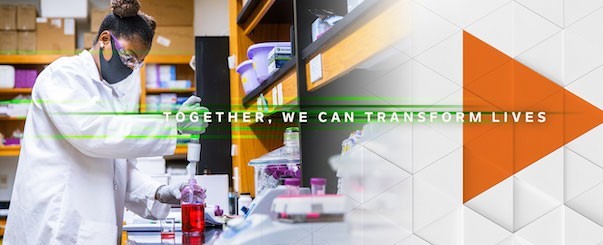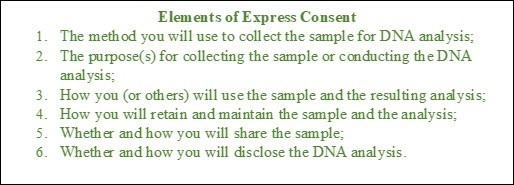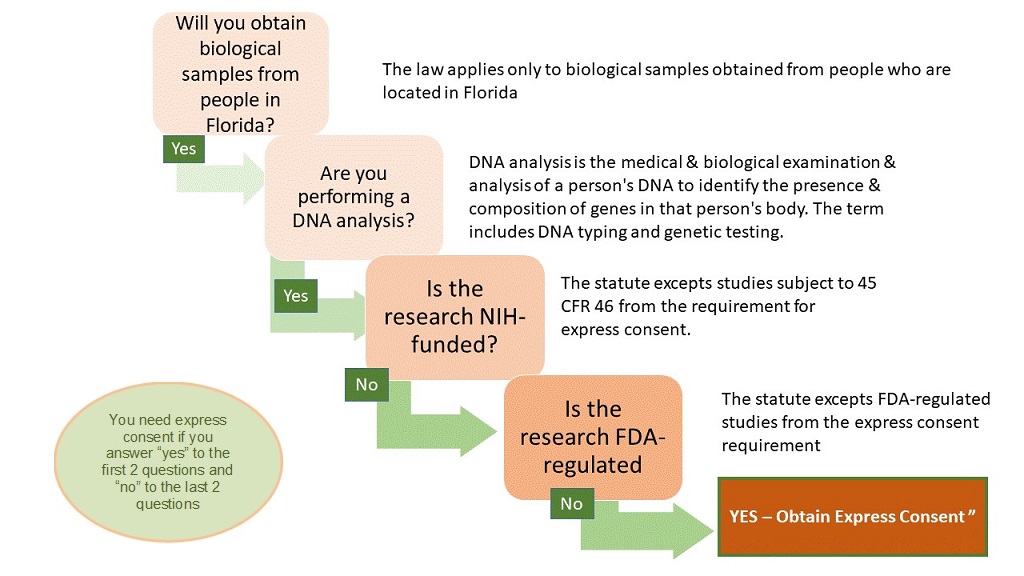Effective October 1, 2021
Florida 'Protecting DNA Privacy Act'. (760.40, F.S.) and Research

Florida 'Protecting DNA Privacy Act'. (760.40, F.S.) and Research
A Florida law that becomes effective October 1, 2021, makes the results of a DNA analysis the exclusive property of the person who was tested.
This law requires express consent from individuals in Florida, their individual's legal guardian, or their authorized representative before researchers can:
- collect a biological sample to perform a DNA analysis;
- analyze their DNA;
- submit their biological sample for DNA analysis or conduct or obtain said analysis; and
- sell, disclose or transfer the DNA sample or the genetic testing (DNA) results to a third party
This law considers each of the above actions a separate crime. Performing any one of the above activities without express consent could result in a felony.
To obtain express consent, you must obtain an affirmative agreement (signature and date) from the individual, guardian or legal representative after you disclose to them the elements of express consent.

The HSRO has included the Elements of Express Consent in the HSRO Consent Templates for biological research and studies involving biological samples.
There are some exceptions to the requirements for express consent for some research activities, including research that is NIH-funded and/or FDA-regulated; if you have questions about another type of exception, contact the HSRO.
How do I determine if the law covers my research activity?

What about ongoing research?
The law applies to ongoing research. It is effective October 1, 2021. You will need to comply when conducting each of the activities described at the top of this page on or after that date.
For more information, please click here>.






